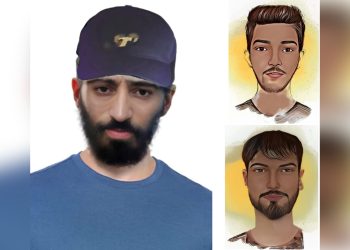DUBAI, Dec 9 (Reuters) – A prominent dissenting Sunni cleric on Friday said the death sentence of an Iranian protester involved in anti-government unrest violated sharia law, as President Ebrahim Raisi promised to press on with a crackdown a day after the man’s execution.
On Thursday, Iran hanged Mohsen Shekari, who had been convicted of injuring a security guard with a knife and blocking a street in Tehran, the first such execution after thousands of arrests over the unrest, drawing a chorus of Western condemnation.
Nationwide protests that erupted after the death in police custody of 22-year-old Kurdish Iranian woman Mahsa Amini on Sept. 16 pose one of the biggest challenges to theocratic rule in Iran since the 1979 Islamic Revolution.
“The identification, trial and punishment of the perpetrators of the martyrdom (killing) of security forces will be pursued with determination,” Raisi said at a ceremony honouring security forces killed during protests, according to state media.Molavi Abdolhamid, an outspoken Sunni cleric in the Shi’ite-ruled Islamic Republic, criticised the death sentence, according to his website.
“When someone has not killed but only blocked a road and stabbed and injured a Basij (militia) member with a knife, he cannot be put to death under sharia,” Molavi Abdolhamid said.
“Listen to these protests and negotiate with the people of Iran. Beating, killing and executing this nation is not right. This protest will not be quelled by killing people,” he said, addressing authorities.
State media published a video of what it said was Shekari’s confession where he appears with a bruise on his right cheek. He admitted to striking a member of the Basij militia with a knife and to blocking a road with his motorbike alongside one of his friends.
Human rights groups said Shekari was tortured and forced to confess.
A video widely shared on social media showed protesters shouting from north Tehran rooftops late into the night “We are all Mohsen” and “Khamenei is a murderer” – in reference to Supreme Leader Ayatollah Ali Khamenei.
Another video showed people lighting candles in front of Shekari’s home late on Friday. Reuters could not immediately verify the videos.
In Geneva, U.N. Human Rights High Commissioner Volker Turk called the execution “very troubling and clearly designed to send a chilling effect to the rest of the protesters.” He called on the Iranian authorities to immediately institute a moratorium on the death penalty.
In a Friday prayers sermon, however, hardline cleric Ahmad Khatami thanked “the judiciary for sending the first rioter to the gallows.”
Iran’s foreign ministry rejected Western criticism of rights abuses during the crackdown as meddling in Iran’s internal affairs and in violation of international law.
“Under the slogan of supporting human rights or women’s rights, (Western countries) incite and promote violence against the integrity of the nation and Iran’s national security,” ministry spokesperson Nasser Kanaani said in a statement carried by state media.
‘SHAM TRIALS’
Amnesty International has said Iranian authorities are seeking the death penalty for at least 21 people in what it called “sham trials designed to intimidate those participating in the popular uprising that has rocked Iran”.
Iran has blamed the unrest on its foreign foes including the United States, although protesters have come from all walks of life in the Islamic Republic and have drawn public support from prominent cultural and sports figures, as well as a sister and a niece of Ayatollah Khamenei.
Germany on Friday condemned the execution, called on Tehran to immediately end its violence against protesters and confirmed it had summoned the Iranian ambassador in Berlin.
Britain announced sanctions on Friday against 30 people worldwide, including officials from Russia, Iran and Myanmar it deems responsible for human rights abuses or corruption.
Molavi Abdolhamid made his critical comments from Zahedan, the capital of restive Sistan-Baluchistan province, home to Iran’s Baluch minority who have faced discrimination and repression for decades, according to human rights groups.
Protests were held in Zahedan and other cities of the province on Friday, according to online videos.
The top security body in the province said on Friday Molavi Abdolvahed Rigi, a Friday prayers imam in the town of Khash, was kidnapped and killed in an “act of terror”, state television reported, without elaborating.





































